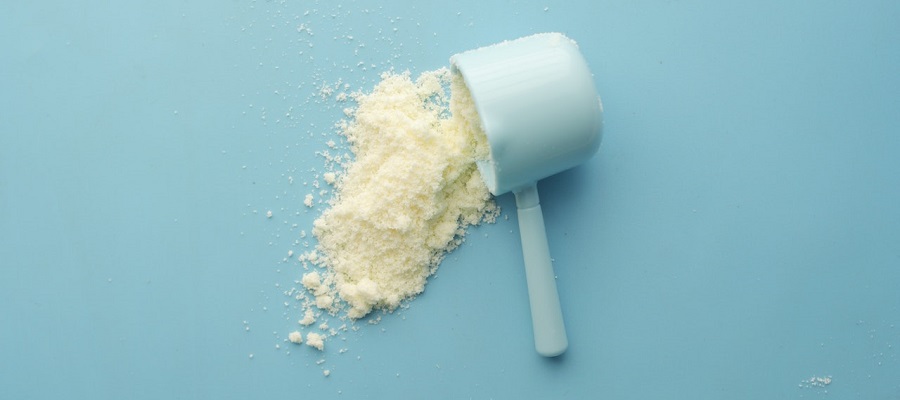Whey protein is a type of protein that is derived from milk. It is a complete protein, meaning that it contains all nine essential amino acids, which are the building blocks of protein that the body cannot produce on its own and must obtain from the diet.
Whey protein is a popular choice among athletes and bodybuilders because it is easily digestible and helps to build and repair muscle tissue. It is also popular among people who are trying to lose weight, as it can help to reduce appetite and increase muscle mass.
There are three main types of whey protein: concentrate, isolate, and hydrolysate. Concentrate is the least processed form of whey protein and contains more fat and lactose. Isolate is a more pure form of whey protein that has had most of the fat and lactose removed. Hydrolysate is a form of whey protein that has been partially broken down, making it easier to digest.
Whey protein is generally considered safe when consumed in recommended amounts. However, some people may be allergic to milk and should avoid whey protein. It is also important to be aware that some whey protein supplements may contain additives or sweeteners that may not be suitable for everyone.
Whey protein is typically consumed in the form of a powder that can be mixed with water, milk, or another liquid to make a shake. It can also be added to foods such as smoothies, yogurt, or baked goods to increase the protein content. It is important to follow the recommended dosage guidelines for whey protein and to speak with a healthcare professional before adding it to your diet.
what is whey protein made of ?
Whey protein is a type of protein that is derived from milk. Specifically, it is the liquid portion of milk that separates from the curds during the process of making cheese.
To make whey protein, the liquid whey is filtered to remove the lactose, fat, and other impurities. The resulting liquid is then dried to create a powder. The process of making whey protein can vary, and there are different types of whey protein available, including concentrate, isolate, and hydrolysate.
Concentrate is the least processed form of whey protein and contains more fat and lactose. Isolate is a more pure form of whey protein that has had most of the fat and lactose removed. Hydrolysate is a form of whey protein that has been partially broken down, making it easier to digest.
Whey protein is a complete protein, meaning that it contains all nine essential amino acids, which are the building blocks of protein that the body cannot produce on its own and must obtain from the diet. It is a popular choice among athletes and bodybuilders because it is easily digestible and helps to build and repair muscle tissue. It is also popular among people who are trying to lose weight, as it can help to reduce appetite and increase muscle mass.
Protein as useful as whey protein
There are several other types of protein that are similar to whey protein in terms of their nutritional profile and potential health benefits. These include:
-
Casein protein: Casein protein is also derived from milk and is the primary protein found in cheese. It is a slow-digesting protein that can help to promote muscle growth and repair.
-
Soy protein: Soy protein is derived from soybeans and is a complete protein that is suitable for vegetarians and vegans. It is high in amino acids and has been shown to be effective at building and maintaining muscle mass.
-
Pea protein: Pea protein is derived from yellow peas and is a complete protein that is suitable for vegetarians and vegans. It is easily digestible and has been shown to be effective at building and maintaining muscle mass.
-
Rice protein: Rice protein is derived from brown rice and is a complete protein that is suitable for vegetarians and vegans. It is easily digestible and has been shown to be effective at building and maintaining muscle mass.
-
Hemp protein: Hemp protein is derived from hemp seeds and is a complete protein that is suitable for vegetarians and vegans. It is high in fiber and essential fatty acids and has been shown to be effective at building and maintaining muscle mass.
It is important to choose a protein that meets your individual needs and dietary preferences. It is also important to speak with a healthcare professional before adding a protein supplement to your diet.
Is whey protein 100% natural?
Whey protein is a type of protein that is derived from milk. It is a complete protein, meaning that it contains all of the essential amino acids that the body needs to function properly. Whey protein is often used as a supplement to help people build muscle and improve athletic performance, and it is also used in some food products as a way to increase the protein content.
There is some debate about whether or not whey protein is 100% natural. Some people argue that whey protein is natural because it is derived from milk, which is a natural food source. However, others argue that the process of producing whey protein involves several steps that involve the use of chemicals and other additives, which makes it less natural.
To understand whether or not whey protein is 100% natural, it is important to look at the process of producing it. Whey protein is produced from milk, which is a natural food source. However, the process of producing whey protein involves several steps that involve the use of chemicals and other additives.
The first step in the production of whey protein is the separation of the protein from the rest of the milk. This is typically done through a process called ultrafiltration, which involves passing the milk through a membrane that filters out the protein. The protein that is collected during this process is called "whey protein concentrate."
After the protein has been separated from the rest of the milk, it is typically processed further to remove any remaining fat and lactose. This is typically done through a process called "ion exchange," which involves passing the protein through a resin that binds to the fat and lactose. The protein that is collected during this process is called "whey protein isolate."
After the protein has been isolated, it is typically dried and then made into a powder. This is typically done through a process called "spray drying," which involves spraying the protein solution into a stream of hot air, which evaporates the water and leaves behind a dry, powdery protein.
There are some people who argue that the process of producing whey protein involves the use of chemicals and other additives that make it less natural. For example, the process of ultrafiltration involves the use of a membrane, which is typically made from synthetic materials such as polysulfone or polyethylene. In addition, the process of ion exchange involves the use of a resin, which is typically made from synthetic materials such as crosslinked polystyrene. Some people argue that the use of these synthetic materials makes whey protein less natural.
However, it is important to note that the use of synthetic materials in the production of whey protein is not necessarily a bad thing. These materials are used to help improve the efficiency and effectiveness of the production process, and they do not necessarily have any negative effects on the safety or quality of the protein.
In conclusion, whey protein is not 100% natural, as it is produced through a process that involves the use of synthetic materials and other additives. However, it is important to note that the use of these materials does not necessarily make whey protein less safe or less effective. When consumed in moderation as part of a healthy diet, whey protein can be a useful tool for building muscle and improving athletic performance.
Casein protein
Casein protein is a type of protein that is derived from milk. It is the primary protein found in cheese and makes up about 80% of the protein in cow's milk.
Like whey protein, casein is a complete protein, meaning that it contains all nine essential amino acids. However, casein is a slow-digesting protein, which means that it is absorbed more slowly by the body. This makes it a good choice for people who are looking to sustain their protein intake over a longer period of time, such as during sleep or between meals.
Casein protein is often used by athletes and bodybuilders to help build and repair muscle tissue. It is also popular among people who are trying to lose weight, as it can help to reduce appetite and increase muscle mass.
Casein protein is generally considered safe when consumed in recommended amounts. However, some people may be allergic to milk and should avoid casein protein. It is also important to be aware that some casein protein supplements may contain additives or sweeteners that may not be suitable for everyone.
Casein protein is typically consumed in the form of a powder that can be mixed with water, milk, or another liquid to make a shake. It can also be added to foods such as smoothies, yogurt, or baked goods to increase the protein content. It is important to follow the recommended dosage guidelines for casein protein and to speak with a healthcare professional before adding it to your diet.
Always make sure that you consume enough protein.


